A few weeks into Adriana Tapia Gomez’s spring semester of her sophomore year at George Washington University, she ordered an Uber to Reagan National Airport to fly home to Seattle with her father, Jose Tapia, leaving campus five months before her peers. A Facebook post prompted this decision. Her roommate’s boyfriend shared a post about his friend’s experience with a leave of absence, and Adriana started to think about this option for herself. Struggles with her mental health during the fall semester resulted in failing classes, binge-drinking several nights a week, and days without leaving her room or eating. She knew things weren’t getting better. She called her dad and told him she needed his help. He flew to D.C. two days later, and because this was the first time she’d spoken to her father about her struggles, she explained only the necessary information without going into much detail. But she did show him her scars from self-harming. Jose listened but didn’t ask many questions.
The Challenges Faced by Those Who Take a Mental-Health Leave of Absence
About 75% of lifelong mental-health conditions begin by age 24, according to the National Alliance on Mental Illness. When those challenges force college students to leave, the path back can feature a lot of unknowns, unexpected consequences, and stigma.
By Staff
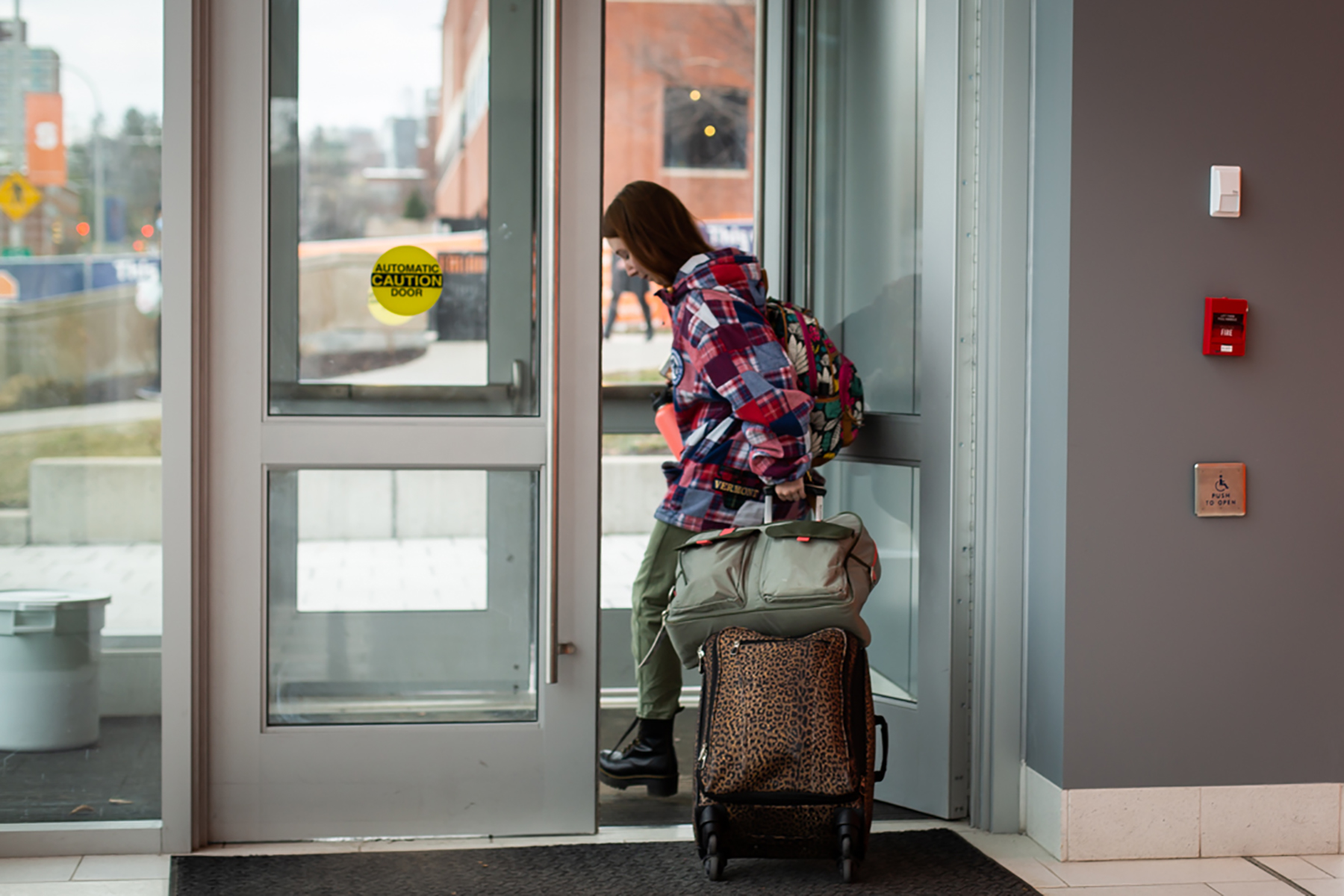
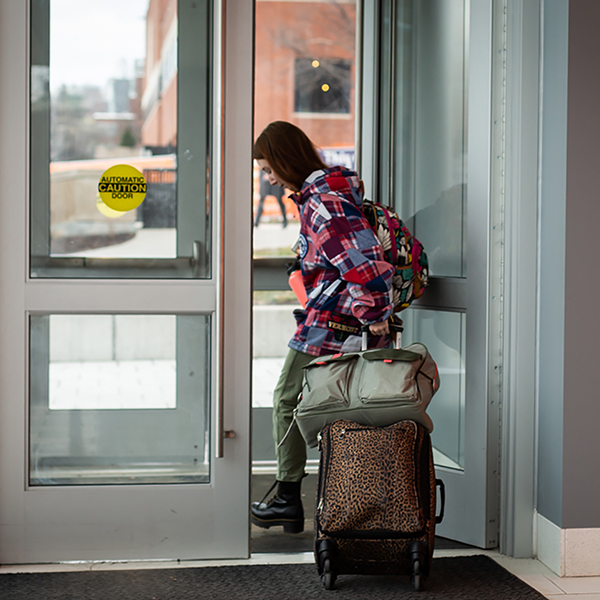
Between 2007 and 2017, the number of students with lifetime mental illness diagnoses increased by 140%, according to surveys conducted by the Healthy Minds Network. Photo by Maranie Staab.
As the Uber pulled up to Adriana’s dorm, she said goodbye to her friends and grabbed one of the five suitcases carrying almost everything she owned. Jose and Adriana said nothing as they threw the suitcases into the trunk and hopped in the car. Sitting in the Uber, she looked out the window and watched the dorms and academic buildings on GW’s campus fade behind her. The tip of the Washington Monument peered over the 10-story buildings lining K Street. As the car veered left on the roundabout, she caught a glance of the back of the Lincoln Memorial, prompting a memory of a family trip to D.C. more than a decade ago. Adriana and her parents had immigrated to the U.S. from Mexico and lived in Miami at the time. On the trip to D.C., they visited all of the statues and museums they could squeeze into that weekend. Standing in front of the 19-feet, marble structure of Lincoln was her favorite part of the trip, an experience that drew her back to the city for college.
She turned her gaze down to her feet and dropped her head, wondering if she’d ever see the monument again. Unsettled by the silence in the car, Adriana turned her head in her father’s direction. She noticed a change in his breath and saw tears running down his face. She looked back down at her scuffed, faded sneakers.
“Ready?” Jose asked Adriana 20 minutes later, as the Uber pulled up to Terminal B.
“Yeah,” Adriana said.
Risks, Stigmas, and Unwanted Consequences
Adriana represents one of the many students who struggle with mental-health challenges and leave school in order to find the most effective treatment. But exactly how many students share her experience is unclear — the number of students who leave college for psychological-related reasons is unknown, murky, or simply not made public. Between 2007 and 2017, the number of students with lifetime mental illness diagnoses increased by 140%, and the rate of college counseling center utilization increased by 150%, according to an annual survey by the Healthy Minds Network, a research organization based at the University of Michigan and Boston University with national academic and advocacy partners. But on-campus support for these students isn’t always enough, and medical or personal leaves of absence is an alternative for college students struggling with their mental health.
Schools like Harvard University and University of Pennsylvania have released data showing increasing numbers of students taking leaves, but they don’t disclose what percentage of students are doing so because of mental-health struggles. Leaves of absences are utilized for a range of reasons, including recovering from a medical surgery or a difficult family situation, and the policies surrounding them vary from school to school, explains Emma Moteyunas, associate director of the Dean of Students Office at Syracuse University. Because of this, Moteyunas says, it’s difficult to make the distinction between when a student takes a leave of absence for mental-health-related reasons and how their school supports them. At SU, around 150 students (out of a population of about 15,000 full-time undergraduates) take medical or personal leaves of absence for psychological reasons each year, says Cory Wallack, Ph.D., the executive director of health and wellness at SU.
“The issue is that a leave of absence can have unwanted consequences as well. If being in school or being a college student is the main thing that is giving [their] life purpose and direction, then taking that away can be risky.”
For those who do, it’s an option that comes with individual risks, potential benefits, and stigmas. To ensure the success of a leave of absence, students need to consider what they will do once they are home. There are a few considerations before a leave of absence is the logical choice for a student, says Carla Chugani, Ph.D., an assistant professor at the University of Pittsburgh School of Medicine. Chugani, who previously worked as a counselor for the school, says the decision-making process primarily revolves around the safety and academic functioning of a student. Severe eating disorders or suicidal ideation are among some of the behaviors that warrant concern for the student’s safety on-campus. Poor attendance or academic failure are some of the “functioning” factors that warrant consideration of a leave of absence.
“The issue is that a leave of absence can have unwanted consequences as well,” Chugani says. Upon a student’s return to campus, re-adjusting to academic structures and demands, operating out of sync with friends and classmates, and anticipating a delayed graduation is not only emotionally distressing, but it can negatively impact a students’ performance. “If being in school or being a college student is the main thing that is giving [their] life purpose and direction, then taking that away can be risky,” Chugani says. Proper support and mental-health resources on campus play a much-needed role, and that isn’t always available. Plus, Chugani says, when students take time off from school, a plan of action is a necessity because returning home to an environment informed by structure supports the ultimate goal — getting better.
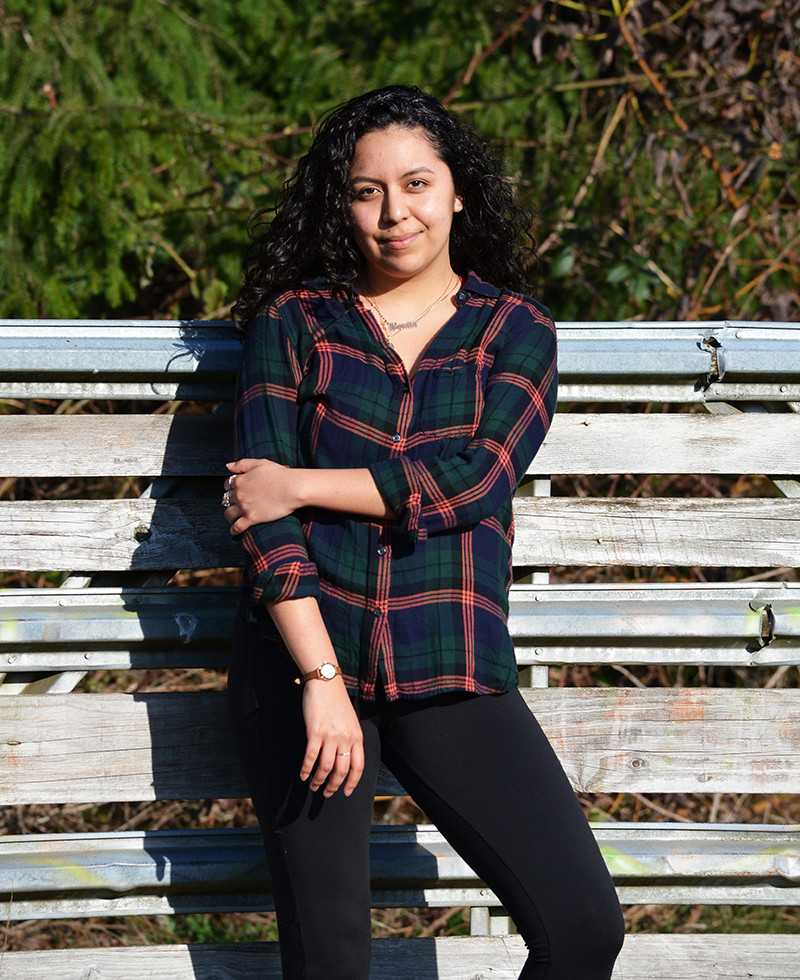
After struggles with her mental health during the fall semester that resulted in failing classes, binge-drinking, and days without leaving her room or eating, she left George Washington University few weeks into the spring semester of her sophomore year. Photo courtesy of Adriana Tapia Gomez.
“A Voluntary Lockdown”
For Adriana and Jose, that structure took time to create. After their six-hour plane ride to the Seattle-Tacoma International Airport, an hour-long journey through baggage claim, and a drive through the city, they arrived at his townhouse. Her parents divorced two years prior, and they sold Adriana’s childhood home the following summer. She technically hadn’t had a home since then — at least not one that stored her childhood memorabilia. She and her father hadn’t discussed what her leave of absence would look like. But before Jose left Seattle to pick Adriana up, he called his group therapist for divorced fathers to ask for advice and see if she could help. “It was a hard moment,” Jose says, “there’s no playbook.”
After an initial consultation, Jose’s group therapist said she could help Adriana. They scheduled weekly sessions for the foreseeable future and created room to add more sessions each week if Adriana needed it. From that point on, Adriana describes her leave of absence as a “voluntary lockdown.” Jose worked from home for nearly two months so she wasn’t alone during the day. She wasn’t allowed to drive the car by herself. Adriana saw her friends, family and boyfriend, but she didn’t stay out past dark or leave her house for long periods of time.
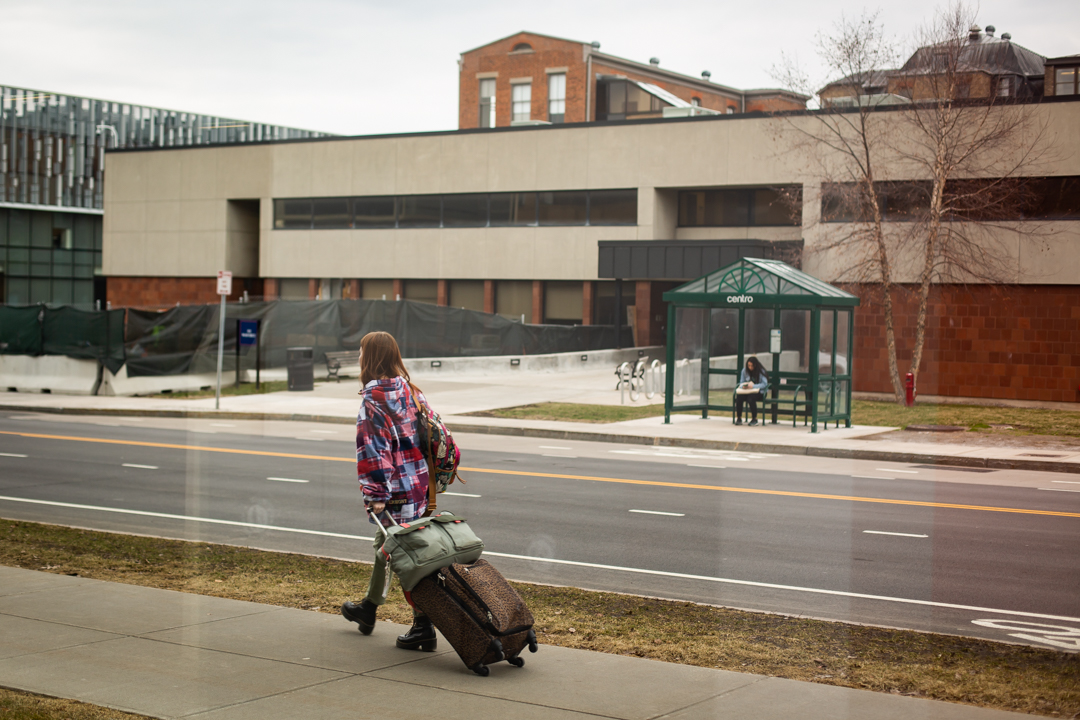
At Syracuse University, students must provide the school with a letter from a licensed medical provider supporting the leave and signed forms authorizing the communication of the students’ medical information among the school’s staff and administration. Photo by Maranie Staab.
“It was his decision, but I didn’t fight it,” she says, “having someone take care of me and watch over me and make sure I wasn’t doing anything to myself was really refreshing.” Adriana says it was nice “to be a kid again” and have someone look after her after “fending for herself for awhile.”
But adjusting to this new lifestyle challenged both Jose and Adriana. She had been working side jobs and going to school since she was 16, but her therapist advised that this time should be dedicated solely to getting better. “My initial thought was ‘you have to be active, you have to be busy, you have to keep learning,’” Jose says. “I didn’t know that she needed some time to settle down first.” Adriana’s therapist wanted her to focus on how she was feeling to the exclusion of anything else. If she was taking this time from school to learn more about herself, her diagnosis, and her symptoms, it should be dedicated to that. Slowing down and reconnecting with what made her happy was an important part of Adriana’s structured routine during her leave. She was strict with her schedule and diligent about preoccupying herself. Adriana did “check-ins” with Jose to make sure she was eating regularly. On her good days, Adriana says she would read, write, draw, attend therapy, go on long walks and hikes, and spend time with friends and family. On her bad days, Adriana says she struggled to maintain motivation, and would stay in bed for most of the day.
“Having someone take care of me and watch over me and make sure I wasn’t doing anything to myself was really refreshingy.”
But the game changer, she says, was having a friend who was going through a similar experience. Cassie Carman, a friend from high school, was also taking a leave of absence at the time but for different reasons. The two spent their off time together driving around, running errands, and exploring the area. In February, a few weeks into Adriana’s treatment, Cassie drove her to her therapy session. During that session, Adriana was diagnosed with post traumatic stress disorder, which she struggled to accept.
“When she told me I went into shock and my therapist noticed,” Adriana says.
Adriana said that in her mind it was “acceptable” to experience depression or anxiety. To her, veterans or abuse survivors struggled with PTSD. The diagnosis meant that her experiences with an adverse family dynamic during childhood had affected her in ways she hadn’t considered before. It also meant that Adriana would have to resolve issues with Jose and her mother, who she hadn’t spoken to in nearly a year.
“I wasn’t very happy to embrace it, but the moment I did it helped healing go by a lot quicker,” Adriana says. She says her therapist told her that her symptoms “screamed PTSD.” After “unpacking” her childhood with her therapist, Adriana says she realized her symptoms began to appear as early as 9 years old. Things worsened in high school when she began experiencing intense nightmares that caused severe sleeping troubles. Adriana remembers at 19 that she still crawled into Jose’s bed at night because she couldn’t sleep by herself. Adriana experienced anxiety and depression as a result of her PTSD and would have episodes of what she called her “fog.”
“I call it a fog because I can’t really do anything,” she says. “I shut down. I don’t eat. I don’t get out of bed. I just get very very antisocial. I just tend to push people away.”
Mental-Health Conditions Treated Among College Students
The Center for College Mental Health at Penn State University’s 2018-2019 report showed the range of mental-health conditions treated among college students. Some students were treated for more than one condition.
As Adriana’s therapy sessions continued, she began to participate in sessions with her mom and Jose separately. While the sessions with her mother didn’t give Adriana closure, she says it helped her process her past. Jose says the sessions helped him better understand what Adriana was going through and what she needed to do to get better.
For Adriana, the work of therapy drained her. “I remember being really tired coming out of each session,” she says. “It was work I needed to do. It was kind of like doing a puzzle for figuring out why I had crumbled so badly.” And the answers she found in her therapist’s office often evaporated as soon as she left that space and began trying to manage her life. “I would make so much progress inside that room but the moment I stepped out,” she says. “I had this whole other world of people who had no idea and I didn’t know how to communicate to them.”
The Challenging Path Back to Campus
The disconnect between a student and their life before or outside of their leave of absence can be significant. And it’s something that concerns college counselors, administrators, and researchers. Typically staff who work in a university’s office of student affairs or the university’s service centers assist students during the various phases of the leave process to help mitigate those disconnects. At SU, a team of case managers provide students with a variety of services relating to their success on campus, including offering students guidance on taking a leave of absence. Moteyunas says that following an initial consultation with a student, case managers at SU support students by providing them with information on the types of leaves, either medical or personal, and the paperwork required for the financial aid or on-campus housing offices, among others. At SU, students have to provide the school with a letter from a licensed medical provider supporting the leave and signed forms authorizing the communication of the students’ medical information among the school’s staff and administration. For this type of leave, case managers work with students to ensure the approval and receipt of this information as well as support them in finding off-campus medical support.
Personal leaves can be taken for non-medical events that may require a student to be off-campus for the semester. If a student’s family member dies, for example, they might need time away from campus to grieve and might be worried their academic performances would suffer as a result of the loss. Personal leaves require less paperwork and documentation because there are less confidentiality issues and legal restrictions. Case managers at SU check in with students on personal leaves for updates on their plans for returning to campus. When students do come back, they can work with their case manager for support and advice on the transition.
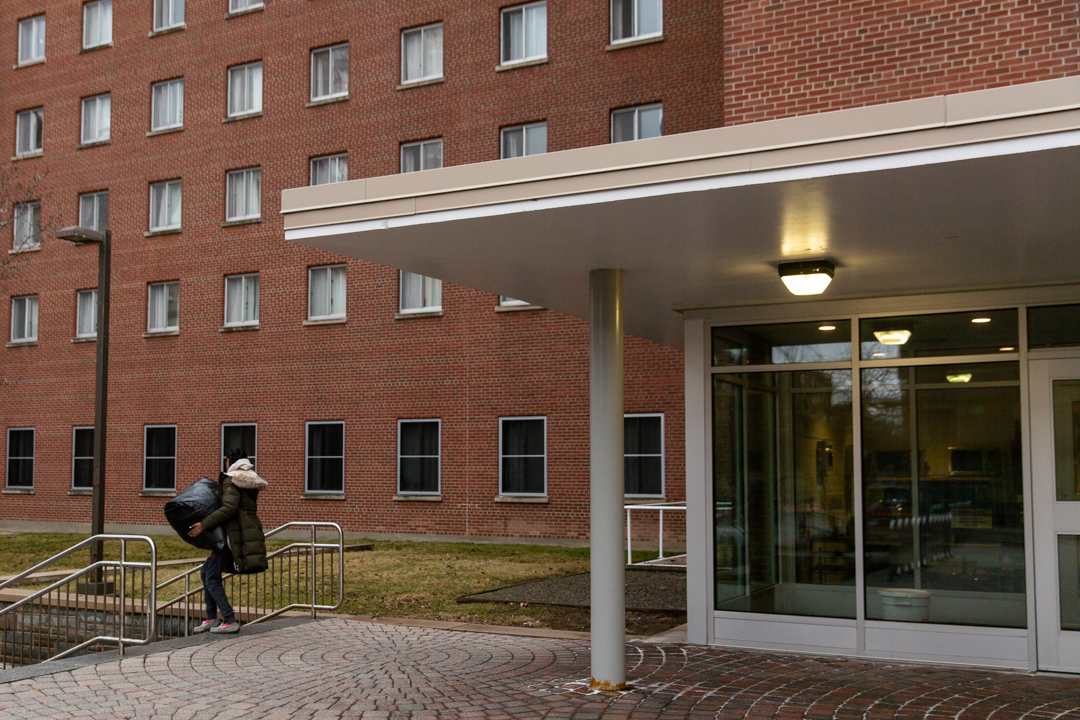
While all schools are legally required to offer their students medical leaves of absence, there aren’t many regulations for support during or after the fact. Photo by Maranie Staab.
SU’s proactive outreach should be the standard, but there isn’t one universal method of support, and not all schools have the bandwidth to check in with individual students, Moteyunas says. As a result, students on leave can miss important deadlines, return to campus later than expected, or have an unsuccessful leave experience, which can lead to extending their leave or even transferring schools. While all schools are required legally to offer their students medical leaves of absence, there aren’t many regulations for support during or after the fact. When the Americans with Disabilities Act (ADA) was enacted into law in 1990, it protected the rights of those with a mental illness, among other protections provided for those with other types of disabilities or impairments. Through this, students have legal protections if their mental illness should require them to take time off.
Lawsuits by students have created additional protections. In 2004, a student who was admitted for emergency psychiatric care for depression sued GW after the university charged the student with violating the student code of conduct for “endangering behavior,” suspended the student, and evicted them from their dorm. Pro-bono lawyers and the Bazelon Center for Mental Health Law took up the case to fight back against the policy. The school and student eventually reached a confidential settlement. Julia Garrison, a former fellow at the Bazelon Center for Mental Health Law, says cases such as these set the “floor” for policies that protect students with mental illness. But because many disputes between schools and students on this subject are resolved outside of the court, it is difficult to tell where the institutional shortcomings exist, she says.
“I would make so much progress inside that room but the moment I stepped out. I had this whole other world of people who had no idea and I didn’t know how to communicate to them.”
One of the schools attempting to build their support system for students taking personal leaves is Boston University. In 2014, BU created NITEO, which takes its name from the Latin verb for bloom, thrive, shine and aims to provide students with structure during their leave of absence and the skills to have a successful return. Housed in the school’s Center for Psychiatric Rehabilitation, the program serves any student (not just BU students) in higher education who is specifically taking a leave to recover from struggles with a mental-health disorder. Students in the program struggle with a range of disorders, including bipolar disorder, generalized anxiety, and schizoaffective and eating disorders. During the semester-based system, students take non-credit courses informed by their interest and needs. “That loss of identity and role of student is especially important to resume, and so that’s kind of our framework is we use education as a tool,” says Courtney Joly-Lowdermilk, the director of NITEO.
The “simulation of a college experience” allows students to tap into their intrinsic motivations and find out what’s important to them, she says. Program coaches work with students on weekly writing assignments to develop academic strategies and tools. The program’s guidance — along with the fact that participants are surrounded by other young adults in similar situations — creates an environment of open-accountability and self-discovery, Joly-Lowdermilk explains.
But measuring the success of the program, Joly-Lowdermilk says, is difficult. The NITEO team conducts pre- and post- evaluations to measure students’ growth in their psychological well being, hope, and academic efficacy, among other domains. But learning to cope with a mental-health disorder “is not a linear path.” So Joly-Lowdermilk primarily judges the program’s success through anecdotes from the 160 graduates to date. Coaches still hear from students who graduated from the program years prior. A few months ago, a parent of a former student sent Joly-Lowdermilk an email with photos from that student’s wedding. At the end of each semester, friends and family of participating students are invited for a program graduation event, where students can share stories and talk about what they’ve learned or how they’ve grown. Joly-Lowdermilk says it’s meaningful to hear students speak to a large group of people about how they’ve resolved their worries of going back to school, who they are, and who they intend to become.
“I do care so much that they feel ready to go back to school. That’s so important,” Joly-Lowdermilk says. “But another piece is just that they feel part of something, and they feel a sense of belonging within this community.”
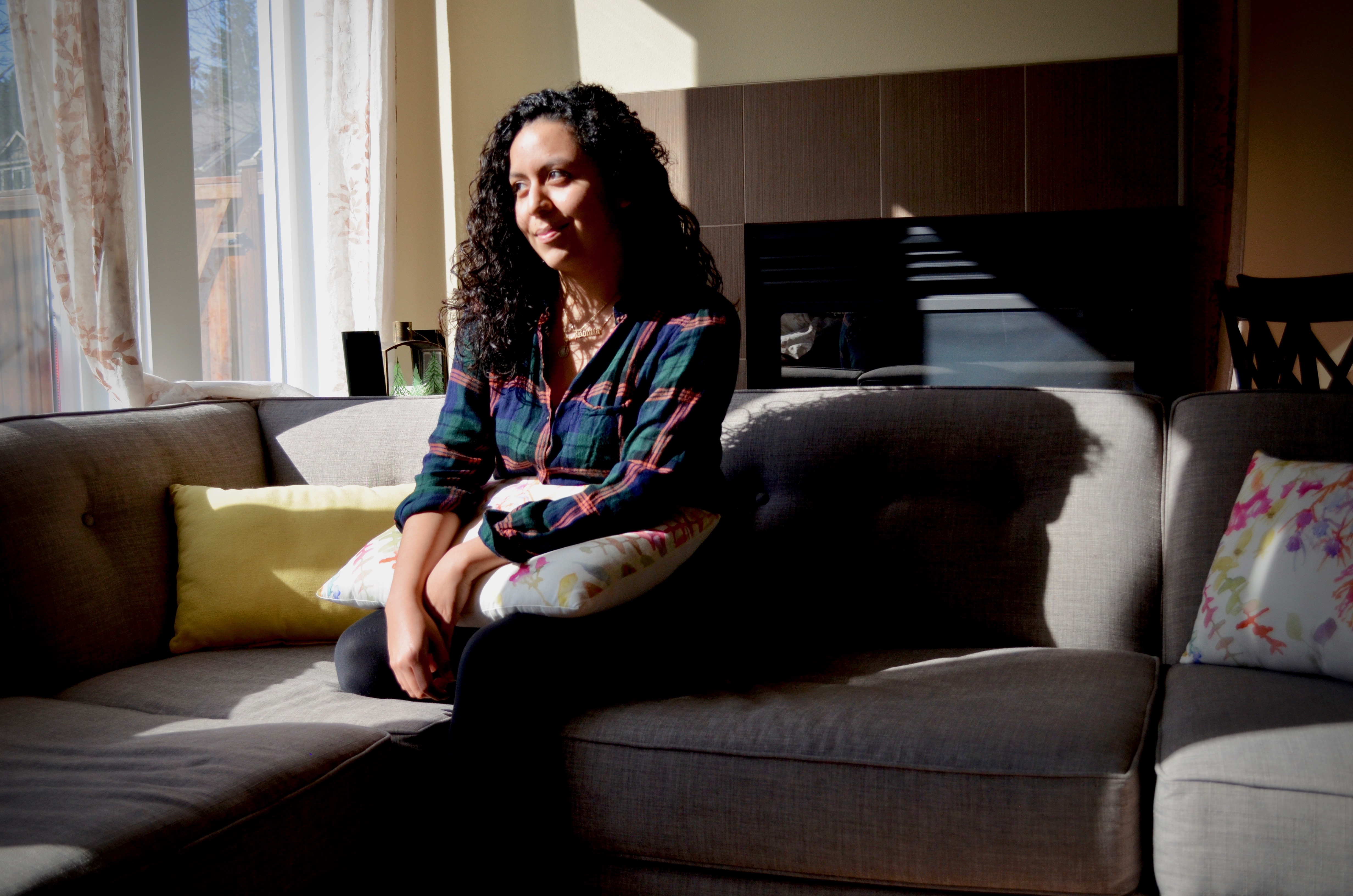
“It was hard. It was different. A lot of vulnerability that I’m not a big fan of, but it definitely paid off,” Adriana says. Photo courtesy of Adriana Tapia Gomez.
NITEO is one of only a handful of semester-based mental-health rehabilitation programs in the U.S. For the first two years, the program operated on grant money and didn’t require any fees from students. Today, it costs $10,000 a semester for each student, but Joly-Lowdermilk says they offer financial assistance and have never turned away a student because they couldn’t afford it. Other rehabilitation-based options for students include in-patient or out-patient programs, but they can be expensive and cost upward of $10,000 per month. Getting insurance to cover fully or partially cover the programs can also be an issue, and these programs rarely conform to a semester schedule. More often than not, students and their families must figure out how to use a leave themselves.
Surviving Vs. Thriving
As Adriana worked with her therapist, family, and friends to develop strategies for coping with her “fog,” the future loomed in the back of her mind. During the first few weeks back in Seattle, Adriana says she had no plans to return to GW. Instead, she wanted to attend a small college in Washington, which was closer to home and her at-the-time boyfriend. Being physically close to her circle comforted Adriana, and she worried about what would happen if she went back to D.C. and whether she would be able to make the changes she needed to be successful at school. “As much as I liked being home and as much as it had healed and helped me, I also acknowledged how much potential I had in me,” Adriana says. “That’s why I applied to GW to begin with. That hadn’t died, but it had taken a back seat because of my emotional situation.”
During the summer after her semester off, Jose sat Adriana down and told her that he would support her decision to transfer to the nearby college and live with her boyfriend. Adriana says her father’s words served as a wake-up call. “I didn’t want to choose the easy option,” she says.
“I do care so much that they feel ready to go back to school. That’s so important. But another piece is just that they feel part of something and they feel a sense of belonging within this community.”
It wasn’t until July, a month before the start of the fall semester, that she decided to go back to D.C. “I sat my dad down and we booked my flight back,” she says. The process of returning to GW was pretty straightforward. No one from the school’s administration had reached out to her during her leave of absence, but her advisor told her in January that all she needed to do was register for classes when she was ready to come back.
Adriana reached out to her roommate from freshman and sophomore year to see if they could room together again. The two started making plans for how to decorate their dorm and even created a Pinterest board for inspiration. A few days after moving in, Adriana sat her roommate down and explained everything in the last few years that caused her to take a leave of absence. It was the first time Adriana had confided in her roommate about her struggles. “It was hard. It was different. A lot of vulnerability that I’m not a big fan of, but it definitely paid off,” Adriana says.
Through reconnecting with her other friends from GW, Adriana realized the deep support system she possessed in D.C. “After going to therapy, I did notice a change in Adriana,” Cassie says. “Laughing a little bit more. Smiling a little bit more. Doing things she enjoys. Spending a whole night painting.” While she adjusted to being on her own again, Adriana says her academic experience on-campus changed too. For the first time in college, she felt motivated to go to class and engage with her professors. “It felt a lot more real, a lot more permanent and a lot more mine than the first year and a half felt because the first year and half,” she says. “I was surviving versus now, I’m functioning and starting to thrive.” Adriana still experiences her “fogs.” But the difference now, she says, is she knows how to communicate what she’s going through, what she needs, and how those around her can help.
Resources
The Bazelon Center for Mental Health Law provides information on legal protection for those with mental illnesses. The center offers resources on mental-health advocacy and provides the public with information on what kind of rights people have in advocating for their own mental health. Call 202-467-5730 x1310, or email communications@bazelon.org.
The Anxiety and Depression Association of America (ADAA) provides an online resource that allows you to search for PTSD and other mental illness-related support groups in your area.
View a complete list of resources.
